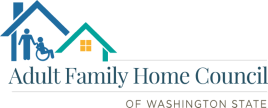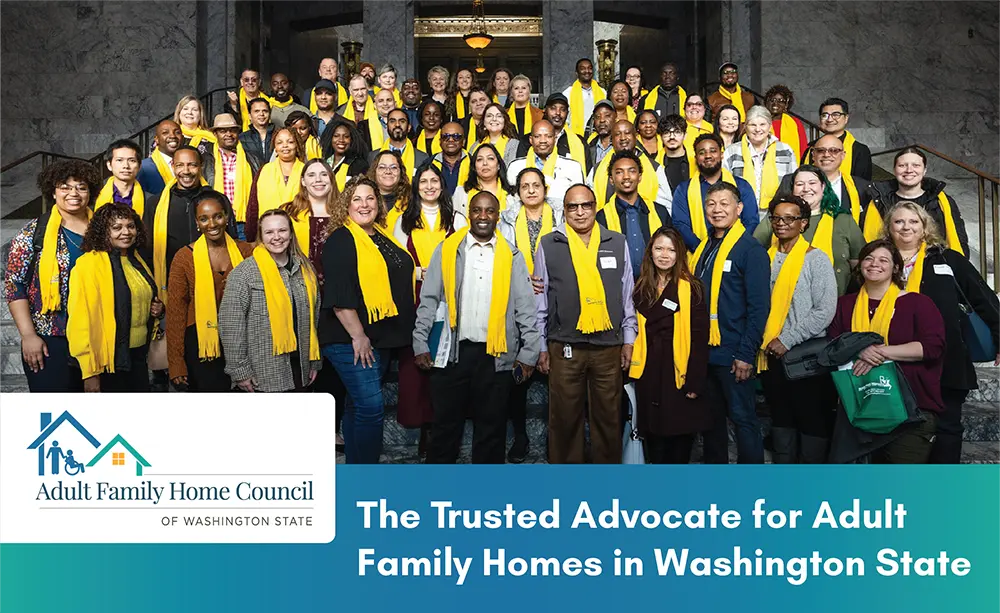
There's a WAC for That!
Medication Systems for AFHs
The #2 citation noted from the RCS Spring Forum is related to medication systems. AFHs receive residents from all kinds of settings – homes, hospitals, other facilities – that all may handle medications differently. Other potential barriers include multiple or various prescribers and/or pharmacies. We recommend using a long-term care pharmacy to ensure knowledge of your facility type.
However, none of these can be a barrier to having a medication system in place. The WAC requires any resident who needs medication assistance or medication administration services to have a system in place. Be mindful of independent residents who want to keep medication in their room. Per WAC, they will require a lock box that is provided at the AFH’s expense.
Refer to the resident’s assessment to find out if they are classified as independent, needing medication assistance, or even medication administration!
Resources
Related WAC
WAC 388-76-10430
Medication system.
(1) If the adult family home admits residents who need medication assistance or medication administration services by a legally authorized person, the home must have systems in place to ensure the services provided meet the medication needs of each resident and meet all laws and rules relating to medications.
(2) When providing medication assistance or medication administration for any resident, the home must ensure each resident:
(a) Assessment indicates the amount of medication assistance needed by the resident;
(b) Negotiated care plan identifies the medication service that will be provided to the resident;
(c) Medication log is kept current as required in WAC 388-76-10475;
(d) Receives medications as required.
(3) Records are kept which include a current list of prescribed and over-the-counter medications including name, dosage, frequency and the name and phone number of the practitioner as needed.
WAC 388-76-10440
Medication—Assessment—Identification of amount of assistance needed when taking medications.
(1) The adult family home must:
(a) Ensure each resident assessment identifies the amount of assistance the resident needs when taking medications; and
(b) Let the practitioner know when the following may affect the resident’s ability to take their medications:
(i) Resident’s physical or mental limitations; and
(ii) The setting or environment where the resident lives.
(2) The amount of assistance needed by a resident when taking their medications is as follows:
(a) Independent self-administration is when the resident does not need help taking medications and is able to directly take medications by eating or drinking, inhaling, by shot, through the skin or other means;
(b) Self-administration with assistance, as described in chapter 246-888 WAC, is when a resident is assisted in taking their medication by a nonpractitioner; and
(c) Medication administration is when medications are administered to the resident by a person legally authorized to do so, such as but not limited to a physician, nurse or pharmacist or through nurse delegation.
(3) The home must contact the resident’s practitioner who will decide if a reassessment is necessary when:
(a) The resident has a change in the health status, medications, physical or mental limitations, or environment that might change the resident’s need for medication assistance; or
(b) There is a need for a resident to have more than one type of medication assistance.
WAC 388-76-10445
Medication—Independent—Self-administration.
The adult family home must ensure residents who have medication assistance assessed as independent self-administration:
(1) Administer their own medications; and
(2) Are allowed to keep their prescribed and over-the-counter medications securely locked in either their room or another agreed upon area if documented in the resident negotiated care plan.
WAC 388-76-10450
Medication—Self-administration with assistance.
(1) For the purposes of this section “enabler” means a physical device used to facilitate a resident’s self-administration of a prescribed or over-the-counter medication. Physical devices include, but are not limited to a medicine cup, glass, cup, spoons, bowl, prefilled syringes, syringes used to measure oral liquids, specially adapted table surfaces, drinking straw, piece of cloth, and the resident’s hand.
(2) The adult family home must ensure that the resident can:
(a) Put the medication into their own mouth; or
(b) Apply, inject, or instill the medications.
(3) The home must:
(a) Provide set-up assistance just before the resident takes or applies the medication; or
(b) Only give oral medications through a gastrostomy or “g-tube” when ordered by the practitioner; and
(c) Ensure the resident is aware they are taking a medication, however the resident does not have to name the medication, effects or side effects.
(4) Self-administration with assistance:
(a) Does not include shots or intravenous medications as defined in WAC 246-888-020, except for a prefilled insulin syringe;
(b) May include steadying or guiding a resident’s hand while applying or instilling medications such as ointments, eye, ear and nasal preparations, but does not include the practice of “hand-over-hand” (total physical assistance) administration;
(c) May include transferring the medications from one container to another to make a single dose such as pouring a liquid from the medication container to a calibrated spoon or measuring cup;
(d) May include reminding or coaching the resident to take their medication;
(e) Does not include direct assistance with intravenous and injectable medications except the home may carry a prefilled insulin syringe which the resident can administer;
(f) May include using an enabler; and
(g) Could include delivering a prefilled insulin syringe to the resident if the resident independently self-administers the injection per WAC 246-888-020.
Relevant definitions from WAC 388-76-10000:
“Medication administration” means giving resident medications by a person legally authorized to do so, such as a physician, pharmacist, or nurse.
“Medication organizer” is a container with separate compartments for storing oral medications organized in daily doses.
WAC 388-76-10765
Storage.
Not a Member Yet?
Membership fees enable the Council to cover legal expenses and fund staff to advocate with the state and regulatory agencies. The participation of every adult family home is vital to ensuring fair regulations and rates that accurately reflect the costs of caring for our vulnerable adults. Consider becoming a member of the Council to help us continue improving conditions for all adult family homes in Washington State.

